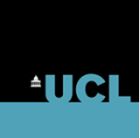Philosophy
Philosophy (from Greek φιλοσοφία, philosophia, literally "love of wisdom") is the study of general and fundamental problems concerning matters such as existence, knowledge, values, reason, mind, and language. The term was probably coined by Pythagoras (c. 570–495 BCE). Philosophical methods include questioning, critical discussion, rational argument, and systematic presentation. Classic philosophical questions include: Is it possible to know anything and to prove it? What is most real? Philosophers also pose more practical and concrete questions such as: Is there a best way to live? Is it better to be just or unjust (if one can get away with it)? Do humans have free will?
Scandinavian Studies
Scandinavian studies is an interdisciplinary academic field of area studies, mainly in the United States and Germany, that covers topics related to Scandinavia and the Nordic countries, including languages, literatures, histories, cultures and societies. The term Scandinavia mainly refers to Denmark, Norway and Sweden, although the term Scandinavian in an ethnic, cultural and linguistic sense also refers to the peoples and languages of the Faroe Islands and Iceland, and the Scandinavian-speaking (that is, Swedish-speaking) minority in Finland. Scandinavian studies does not exist as a separate field within Scandinavia or the Nordic countries themselves, as its scope would be considered far too broad to be treated meaningfully within a single discipline. The closest related field in Scandinavia would be the more narrow discipline of Nordic linguistics, which covers North Germanic languages. A major focus of Scandinavian studies is the teaching of Scandinavian languages, especially the three large languages Danish, Norwegian and Swedish.
Philosophy
It is as absurd to expect members of philosophy departments to be philosophers as it is to expect members of art departments to be artists.
Leo Strauss, “What is liberal education?” Liberalism, Ancient and Modern (1968), p. 7. Reported in Hoyt's New Cyclopedia Of Practical Quotations (1922), p. 596-97.

